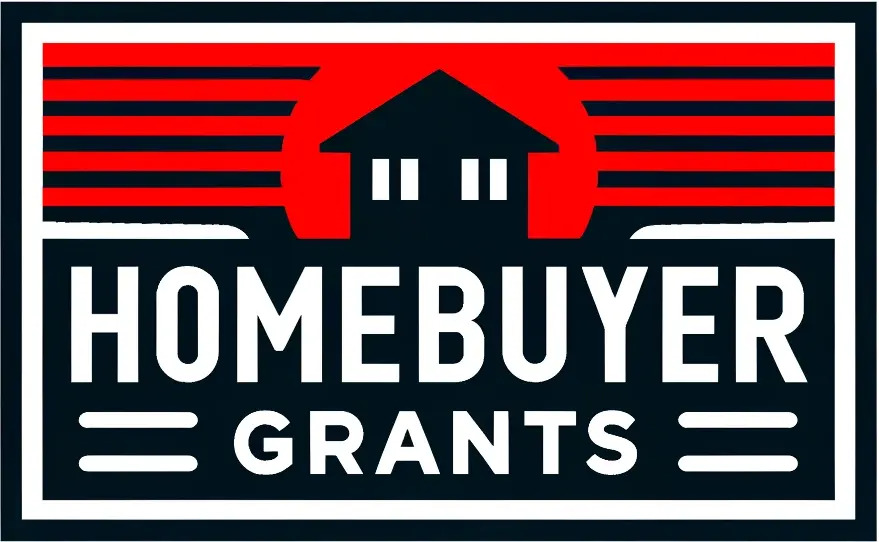Our Services
We provide an assortment of services here at Iloangrants.com Have a look below at some of the things we can provide you with today.

Conventional Homebuyer Grants
A Nevada conventional homebuyer grant is a financial assistance program designed to help homebuyers with the costs associated with purchasing a home. Unlike loans, these grants typically do not need to be repaid, making them an attractive option for many buyers. Here’s what you need to know about these grants, including their highlights and how to qualify:
A conventional homebuyer grant is a form of financial aid provided by various entities such as government agencies, non-profit organizations, or private foundations. These grants aim to reduce the financial burden on homebuyers by covering a portion of the down payment, closing costs, or other related expenses.
Non-Repayable Assistance: Grants do not require repayment, unlike loans or deferred loans. This provides a significant financial boost without adding to your debt.
Covers Key Homebuying Expenses: Grants can be used for down payment assistance, closing costs, or sometimes even minor home repairs. This helps in reducing the initial out-of-pocket expenses for the homebuyer.
Boosts Purchasing Power: By helping buyers afford homes they might not have been able to purchase otherwise, grants increase the ability to make competitive offers in a strong housing market.
Encourages Homeownership: Grants are particularly beneficial for first-time homebuyers and low-to-moderate income individuals, often tied to community development and neighborhood revitalization programs.
Variety of Sources: Grants are available from federal, state, and local government programs, as well as non-profit organizations, each with different eligibility criteria and amounts.
Income Requirements: Many grants are targeted towards low-to-moderate income households, with eligibility often based on household income relative to the area’s median income.
First-Time Homebuyer Status: Many grants require applicants to be first-time homebuyers, typically defined as someone who has not owned a home in the past three years.
Primary Residence Requirement: The home being purchased usually must be the buyer’s primary residence; investment properties or second homes generally do not qualify.
Completion of Homebuyer Education: Some grants require applicants to complete a homebuyer education course that covers budgeting, home maintenance, and the buying process.
Geographic Restrictions: Certain grants are available only in specific areas or for homes in targeted communities, often tied to local economic development or revitalization efforts.
Creditworthiness: While grants themselves do not require repayment, qualifying for a mortgage to purchase a home may require meeting certain credit standards. A stable employment history and manageable debt levels can improve eligibility.
Application Process: Applicants usually need to submit an application with supporting documentation, such as proof of income, tax returns, and personal identification. The approval process can vary, so it’s important to check with the specific grant provider.
State and Local Grants: Many states and municipalities offer grants to support homeownership in specific areas or for targeted demographics.
Non-Profit Programs: Organizations like Habitat for Humanity often provide financial assistance as part of their mission to promote affordable housing.
Employer-Assisted Housing (EAH) Programs: Some employers offer grants to employees who purchase homes, particularly in areas where housing is a critical issue.
Conventional homebuyer grants can be a game-changer for those looking to buy a home but needing help with the upfront costs. By reducing financial barriers, these grants make homeownership more accessible and achievable. To take advantage of these opportunities, potential homebuyers should research available grants, understand the qualification requirements, and prepare their application documents thoroughly. Feel free to contact us for more information or guidance on finding the best conventional homebuyer grant for your needs!

FHA Homebuyer Grants
An FHA homebuyer grant is a financial assistance program designed to help individuals with the costs associated with buying a home using an FHA loan. Nevada FHA homebuyer grants can provide crucial support for down payments, closing costs, and other related expenses. Here’s an overview of what FHA homebuyer grants entail, their key highlights, and how to qualify for them:
An FHA homebuyer grant is a form of financial assistance provided by government agencies, non-profit organizations, or private entities to help homebuyers cover some of the costs associated with purchasing a home through an FHA loan. Unlike loans, these grants typically do not have to be repaid, making them a valuable resource for homebuyers.
Non-Repayable Financial Aid: FHA homebuyer grants generally do not require repayment, reducing the financial burden on the homebuyer. This is particularly beneficial for those who have limited savings or are trying to minimize their debt.
Support for Down Payment and Closing Costs: These grants can be used to cover the down payment, which is required for an FHA loan, and can also assist with closing costs. This makes homeownership more accessible by lowering the upfront costs.
Eases the Path to Homeownership: By providing financial assistance, FHA homebuyer grants help make homeownership more achievable, especially for first-time buyers or those with modest incomes.
Flexible Eligibility Requirements: FHA grants often have more lenient eligibility criteria compared to conventional loan grants, including lower credit score requirements and higher debt-to-income ratios.
Complementary to FHA Loans: These grants are designed to work alongside FHA loans, which themselves offer benefits like lower down payment requirements and more flexible credit qualifications.
Income Limits: Many FHA homebuyer grants are aimed at low-to-moderate income households. Eligibility is typically based on household income relative to the area median income.
First-Time Homebuyer Requirement: Often, these grants are targeted at first-time homebuyers, which usually means someone who has not owned a home in the past three years.
Primary Residence: The property being purchased must be used as the buyer’s primary residence. Investment properties or second homes are generally not eligible for these grants.
Homebuyer Education: Applicants may be required to complete a homebuyer education course. These courses provide valuable information on managing finances, understanding mortgages, and maintaining a home.
Credit Requirements: While FHA loans are known for their lenient credit requirements, qualifying for the associated grants may still require a basic level of creditworthiness. Typically, a credit score of at least 580 is needed for an FHA loan with a 3.5% down payment.
Geographic Restrictions: Some grants are available only in specific locations or for homes in certain areas. These restrictions are often in place to encourage homeownership in underserved or revitalizing communities.
Approved FHA Lender: You must work with an FHA-approved lender to apply for these grants. These lenders are familiar with the grant programs and can guide you through the application process.
Documentation: Applicants need to provide documentation such as proof of income, tax returns, and identification. The specific requirements may vary depending on the grant program.
State Housing Finance Agencies (HFAs): Many states offer grants and down payment assistance programs that can be used in conjunction with FHA loans. These programs often provide significant financial aid for homebuyers meeting specific criteria.
Local Government Programs: Cities and counties may offer grants to promote homeownership within their jurisdictions, particularly in designated revitalization areas.
Non-Profit Organizations: Various non-profit organizations provide grants to support affordable housing initiatives. These programs may be geared towards specific groups, such as veterans, teachers, or first responders.
Employer-Assisted Housing Programs: Some employers offer grants or assistance to employees purchasing homes, which can be used along with FHA loans to cover down payment and closing costs.
FHA homebuyer grants provide essential financial support to those looking to buy a home with an FHA loan. By reducing upfront costs and easing financial barriers, these grants make it easier for a broader range of people to achieve homeownership. Understanding the specific requirements and applying for these grants can significantly enhance your ability to purchase a home. For more detailed guidance and to explore available options, reach out to FHA-approved lenders or local housing authorities. If you have any questions or need assistance with the process, feel free to contact us. We’re here to help you navigate the path to homeownership!

Down Payment Assistance
Nevada Downpayment Assistance Programs provide financial aid to homebuyers who need help with the initial costs of purchasing a home, particularly the down payment and sometimes closing costs. These programs are designed to make homeownership more accessible, especially for first-time buyers or those with limited savings. Here’s an overview of our DPA programs.
Downpayment Assistance Programs are initiatives that provide financial support to homebuyers to help cover the down payment, which is a percentage of the home’s purchase price that the buyer must pay upfront. Assistance can come in the form of grants, forgivable loans, or low-interest loans, making it easier for buyers to secure a mortgage and purchase a home.
Reduced Upfront Costs: DAPs help lower the amount of money needed at the time of purchase, making it easier for buyers to afford a home. This can be especially helpful in high-cost markets or for buyers with limited savings.
Variety of Assistance Forms: Assistance can be provided as grants that do not need to be repaid, forgivable loans that are written off after a certain period, or low-interest loans that are repaid over time. This flexibility allows buyers to choose a program that best fits their financial situation.
Broad Availability: DAPs are offered by various sources including federal, state, and local government agencies, as well as non-profit organizations and some employers. This broad availability increases the chances of finding a suitable program.
Promotes Homeownership: By reducing financial barriers, these programs encourage more people to become homeowners, which can improve financial stability and community development.
Complementary to Other Loans: DAPs can often be used alongside different types of mortgage loans, such as FHA, VA, USDA, and conventional loans, making them versatile and adaptable to various financing options.
Income Limits: Many DAPs are designed for low-to-moderate income households. Eligibility is typically based on the buyer’s household income relative to the area median income (AMI). Specific income limits can vary by program and location.
First-Time Homebuyer Status: Many programs target first-time homebuyers, typically defined as individuals who have not owned a home in the past three years. Some programs also consider those who have not owned a home as a primary residence within this period as first-time buyers.
Primary Residence Requirement: The property purchased must generally be used as the buyer’s primary residence. Investment properties or second homes are usually not eligible for assistance.
Completion of Homebuyer Education: Applicants often need to complete a homebuyer education course. These courses cover essential topics like budgeting, understanding mortgages, and maintaining a home, and are aimed at preparing buyers for successful homeownership.
Creditworthiness: While the specific credit requirements can vary, most programs expect applicants to demonstrate a reasonable level of creditworthiness. This means having a fair credit score and a manageable debt-to-income ratio.
Geographic Restrictions: Some DAPs are only available in specific locations or for homes in certain areas. These programs might focus on revitalizing certain neighborhoods or supporting economic development in specific regions.
Approved Lender Requirement: Buyers typically must work with lenders who are approved by the DAP provider. These lenders are familiar with the program requirements and can assist in integrating the assistance with the mortgage loan.
Application and Documentation: Applicants need to provide various documents such as proof of income, tax returns, identification, and information about the property being purchased. The application process can vary depending on the program, so it’s essential to follow the specific guidelines.
Federal Programs: The Federal Housing Administration (FHA), the U.S. Department of Veterans Affairs (VA), and the U.S. Department of Agriculture (USDA) offer loan programs that may include or be combined with downpayment assistance options.
State and Local Programs: Many states, counties, and cities offer their own downpayment assistance programs tailored to local needs and conditions. Examples include the Illinois Housing Development Authority (IHDA) programs and the California Housing Finance Agency (CalHFA) programs.
Non-Profit Organizations: Non-profits like Habitat for Humanity and NeighborWorks America provide downpayment assistance as part of their mission to support affordable housing.
Employer-Assisted Housing Programs: Some employers offer downpayment assistance to employees, often as part of a broader benefits package aimed at attracting and retaining staff.
Downpayment Assistance Programs can be a crucial resource for homebuyers looking to reduce the financial barriers to purchasing a home. By providing various forms of financial aid, these programs make homeownership more attainable and help buyers get into homes with less upfront financial strain. To take advantage of these programs, homebuyers should research available options, understand the eligibility criteria, and prepare the necessary documentation. For personalized guidance and to explore the best downpayment assistance options for your situation, feel free to contact us. We’re here to support you on your journey to homeownership!
About Us
Welcome to Iloangrants.com, your essential guide for discovering grant programs and down payment assistance (DPA) options across Nevada. We specialize in connecting homebuyers with the financial resources they need to make homeownership more accessible. Our one-on-one service, provided by licensed professionals, ensures that you receive expert, personalized guidance throughout your journey. With a reputation for excellence backed by impeccable ratings on the Better Business Bureau (BBB), Google, Yelp, and social media, Iloangrants.com is your trusted partner in finding the best financial assistance to meet your homebuying needs.
Statewide Grants and Downpayment Assistance Programs
Why Choose Us
Choosing Iloangrants.com is the best option to connect with a licensed local professional specializing in Nevada homebuyer grants and down payment assistance (DPA) programs. The platform offers direct access to experts who have in-depth knowledge of local housing markets and Nevada grant opportunities. With their expertise, these professionals can identify and secure the most advantageous financial support available, tailored to your specific location and needs. By partnering with Iloangrants.com, you ensure a personalized, informed approach to homebuying, maximizing your chances of accessing the grants and assistance crucial for making your Nevada homeownership dreams a reality.
USDA Home Loan
The No Money Down Nevada USDA Home Loan through usdaruralmortgage.com provides a remarkable opportunity for homebuyers in eligible rural areas. Designed to make homeownership accessible, this loan program requires no down payment, allowing you to secure a home without the initial financial burden. usdaruralmortgage.com, with its 27 years of expertise, connects you to licensed professionals who guide you through the process, ensuring you benefit from the USDA’s competitive rates and flexible terms. Whether you’re a first-time buyer or looking to refinance, this program can help you achieve your homeownership dreams with minimal upfront costs.
Homebuyer Seminars
Nevada Homebuyer seminars at iloanrates.com offer invaluable insights and expert guidance for anyone looking to purchase a home. These seminars cover a range of crucial topics, from understanding mortgage options and securing financing to navigating the home buying process and leveraging grants or down payment assistance. Hosted by experienced industry professionals, each session provides actionable advice tailored to your homeownership journey. By attending, you’ll gain the knowledge and confidence needed to make informed decisions and achieve your dream of homeownership with ease.
Find Local Real Estate Agents
Finding a Nevada real estate agent through agentfinder007.com streamlines your search for the perfect property expert. This platform connects you with top-rated, local real estate agents who possess deep market knowledge and a proven track record of success. Whether buying or selling, agentfinder007.com matches you with professionals who understand your unique needs and goals. By leveraging their extensive network and expert insights, you gain a trusted partner committed to guiding you through every step of your real estate journey, ensuring a seamless and rewarding experience.
FHA Home Loan
The Nevada FHA Home Loan through fastfhaapprovals.com is an ideal solution for homebuyers seeking flexible financing with lower down payment requirements. Tailored for those with less-than-perfect credit or limited savings, this loan offers accessible terms with down payments as low as 3.5%. fastfhaapprovals.com simplifies the process by connecting you with licensed professionals who specialize in FHA loans, ensuring a smooth and expedited approval. With their expertise, you can navigate the FHA’s beneficial terms confidently, making it easier to secure your dream home while maintaining financial flexibility.
Our Testimonials
At Iloangrants.com, we pride ourselves daily on going that extra mile to please our customers completely. Take a look at what just a few of our pleased patrons had to say about us. Let us help you with all of your Grant and Downpayment Assistance needs!
Get the Latest Grant and DPA News in Nevada

Exploring Homebuyer Grants in Illinois
Exploring Homebuyer Grants in Illinois and Fun Things to Do in the State Illinois is not only known for its rich history, vibrant cities, and [...]
Homebuyer Grants in Idaho
Homebuyer Grants in Idaho and Fun Things to Do in the Gem State Idaho, often referred to as the Gem State, is a fantastic place to call home, [...]
Hawaii Homebuyer Grant Programs
Hawaii Homebuyer Grant Programs and Fun Things to Do in the Aloha State Hawaii is not only a dream vacation destination but also a wonderful [...]
Homebuyer Grant Programs in Georgia
Homebuyer Grant Programs in Georgia and Fun Things to Do in the State If you’re thinking about buying a home in Georgia, there’s great news [...]
A Guide to Homebuyer Grant Programs in Florida
A Guide to Homebuyer Grant Programs in Florida: Opportunities and Fun Facts Buying a home in Florida is a dream for many, with its beautiful [...]
Exploring Homebuyer Grant Programs in Delaware
Exploring Homebuyer Grant Programs in Delaware: Opportunities and Fun Facts If you're considering buying a home in Delaware, you're in luck! The [...]
Homebuyer Grants in Connecticut
Homebuyer Grants in Connecticut: Your Guide to Financial Assistance and Fun Facts About the Nutmeg State Buying a home in Connecticut can be an [...]
Exploring Homebuyer Grant Programs in Colorado
Exploring Homebuyer Grant Programs in Colorado: A Guide for Aspiring Homeowners Colorado is not only known for its breathtaking landscapes and [...]
Homebuyer Grants Available in California
Homebuyer Grants Available in California California, known for its diverse culture, beautiful landscapes, and vibrant cities, can also be one of [...]
Homebuyer Grants Available in Arkansas
Homebuyer Grants Available in Arkansas For those looking to buy a home in Arkansas, there are several homebuyer grants and assistance programs [...]
We also provide Grant and DPA Programs in the following cities
More About Nevada
Nevada (/nəˈvædəˌ -vɑː-/ ⓘ nə-VAD-ə, -VAH-, .mw-parser-output .IPA-label-small{font-size:85%}.mw-parser-output .references .IPA-label-small,.mw-parser-output .infobox .IPA-label-small,.mw-parser-output .navbox .IPA-label-small{font-size:100%}Spanish: [neˈβaða]) is a landlocked state in the Western region of the United States. It borders Oregon to the northwest, Idaho to the northeast, California to the west, Arizona to the southeast, and Utah to the east. Nevada is the 7th-most extensive, the 32nd-most populous, and the 9th-least densely populated of the U.S. states. Nearly three-quarters of Nevada’s people live in Clark County, which contains the Las Vegas–Paradise metropolitan area, including three of the state’s four largest incorporated cities. Nevada’s capital is Carson City. Las Vegas is the largest city in the state.
Nevada is officially known as the “Silver State” because of the importance of silver to its history and economy. It is also known as the “Battle Born State” because it achieved statehood during the Civil War (the words “Battle Born” also appear on its state flag); due to the presidency of Abraham Lincoln, the Union benefited immensely from the support of newly awarded statehood by the infusion of the monetary support of nearly $400 million in silver ore generated at the time by the Comstock Lode. It is also known as the “Sagebrush State”, for the native plant of the same name; and as the “Sage-hen State”. The state’s name means “snowy” in Spanish, referring to Nevada’s small overlap with the Sierra Nevada mountain range; however, the rest of Nevada is largely desert and semi-arid, much of it within the Great Basin. Areas south of the Great Basin are within the Mojave Desert, while Lake Tahoe and the Sierra Nevada lie on the western edge. About 86% of the state’s land is managed by various jurisdictions of the U.S. federal government, both civilian and military.
American Indians of the Paiute, Shoshone, and Washoe tribes inhabit what is now Nevada. The first Europeans to explore the region were Spanish. They called the region Nevada (snowy) because of the snow which covered the mountains in winter, similar to the Sierra Nevada in Spain. The area formed from mostly Alta California and part of Nuevo México’s territory within the Viceroyalty of New Spain, which gained independence as Mexico in 1821. The United States annexed the area in 1848 after its victory in the Mexican–American War, and it was incorporated as part of the New Mexico and Utah Territory in 1850. The discovery of silver at the Comstock Lode in 1859 led to a population boom that became an impetus to the creation of Nevada Territory out of western Utah Territory in 1861. Nevada became the 36th state on October 31, 1864, as the second of two states added to the Union during the Civil War (the first being West Virginia).
Nevada is known for its libertarian laws. In 1940, with a population of just over 110,000 people, Nevada was by far the least-populated state, with less than half the population of the next least-populous state, Wyoming. However, legalized gambling and lenient marriage and divorce laws transformed Nevada into a major tourist destination in the 20th century. Nevada is the only U.S. state where prostitution is legal, though it is illegal in its most populated regions – Clark County (Las Vegas), Washoe County (Reno) and Carson City (which, as an independent city, is not within the boundaries of any county). The tourism industry remains Nevada’s largest employer, with mining continuing as a substantial sector of the economy: Nevada is the fourth-largest producer of gold in the world. Nevada is the driest state, and over time, and influenced by climate change, droughts in Nevada have been increasing in frequency and severity, putting a further strain on Nevada’s water security.
The name “Nevada” comes from the Spanish adjective nevada ([neˈβaða]), meaning “snow-covered” or “snowy”. The state takes its name from the Nevada Territory, which in turn was named for the Sierra Nevada.
5 Tips for Buying a Home with a Nevada Grant or DPA Program
Buying a home is a significant financial milestone, and leveraging homebuyer grants or Down Payment Assistance (DPA) programs in Nevada can make this dream more accessible. These resources can help reduce upfront costs, making homeownership attainable for a broader range of buyers. Here are 5 essential tips for effectively purchasing a home with the help of these programs:
1. Research and Understand Available Programs
Nevada Homebuyer grants and DPA programs vary widely in terms of eligibility, benefits, and application processes. Begin by researching what’s available in your state or local area. iloangrants.com is a valuable resource that connects you with licensed local professionals who are well-versed in local grants and assistance programs. They can help you identify the best options based on your unique situation. Key Points:
- Explore state, local, and federal grant programs.
- Understand the differences between grants (which don’t need to be repaid) and DPA loans (which might have specific repayment conditions).
2. Prepare Your Finances
Even with a grant or DPA, securing a mortgage requires a stable financial profile. Ensure your credit score is in good standing, save for any additional costs, and maintain a low debt-to-income ratio. Lenders will still assess your overall financial health, so being prepared can enhance your chances of qualifying for additional assistance. Key Points:
- Check and improve your credit score.
- Reduce existing debt.
- Save for other expenses like closing costs or moving fees.
3. Work with Experienced Professionals
Navigating the home buying process, especially with grants and DPA programs, can be complex. Working with experienced real estate agents, mortgage brokers, and financial advisors who understand these programs can simplify the process. They can provide insights on eligibility, application procedures, and how to integrate these programs into your overall home buying strategy. Key Points:
- Choose a Nevada real estate agent familiar with grants and DPA.
- Seek advice from financial advisors with experience in these programs.
- Use resources like iloangrants.com to connect with knowledgeable professionals.
4. Get Pre-Approved for a Mortgage
Pre-approval for a mortgage demonstrates your seriousness as a buyer and helps you understand your budget. This step is crucial when you’re planning to use grants or DPA, as it provides clarity on how much additional assistance you might need. Pre-approval also strengthens your position when making offers on homes. Key Points:
- Obtain pre-approval from lenders who are familiar with integrating Nevada grants and DPA.
- Ensure your pre-approval reflects the additional funding from grants or assistance.
5. Plan for Long-Term Affordability
While grants and DPA programs in Nevada can significantly reduce initial costs, it’s essential to consider long-term affordability. Assess your future financial stability to ensure you can handle ongoing expenses such as mortgage payments, property taxes, maintenance, and utilities. Opt for a home that fits comfortably within your long-term budget. Key Points:
- Consider potential changes in income or expenses.
- Plan for maintenance and unexpected repairs.
- Factor in property taxes and insurance costs.
Conclusion
Buying a home with the help of grants or Down Payment Assistance programs can make homeownership more achievable and financially manageable. By researching available programs, preparing your finances, working with experienced professionals, obtaining mortgage pre-approval, and planning for long-term affordability, you can successfully navigate the home buying process. For personalized guidance and to connect with local experts in Nevada homebuyer grants and DPA, visit iloangrants.com. With the right resources and planning, you’ll be well on your way to owning your dream home.








